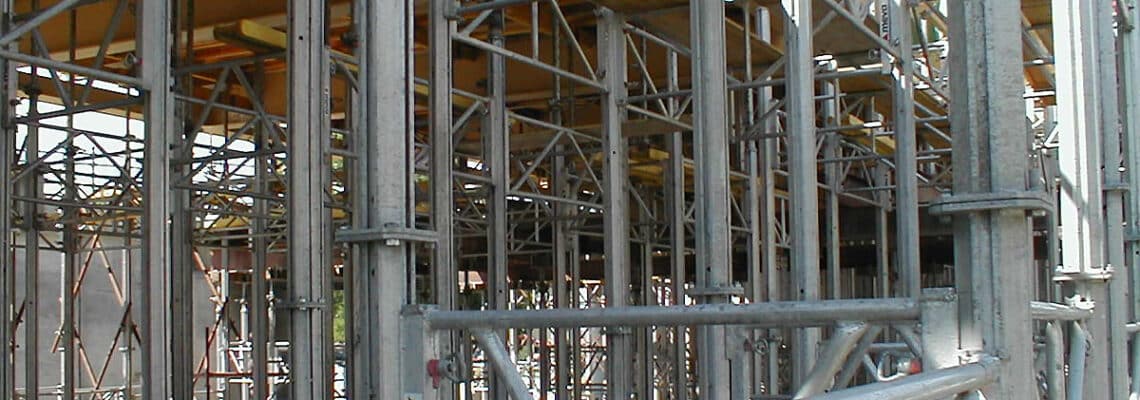In its January, 2015 Decision, Bernard & Bernard v. Town of Lysander, 2015 CA 14-00649
, the Appellate Division, Fourth Department has reversed an order of the Supreme Court of Onondaga County that denied the plaintiffs’ motion for partial summary judgment relating to a fall that was caused by unsafe scaffolding at a construction site.The plaintiff, a construction worker employed by the local government, was building a sewage treatment pump house when the accident occurred. At the time of the accident, the plaintiff was installing Hardie trim boards. In order to reach the upper level of the wall of the pump house to install the remaining boards, the plaintiff and a co-worker constructed a makeshift scaffold. The employer had provided only a 14-foot-long aluminum scaffold plank, so the plaintiff was forced to make do by placing one end of the plank into the bucket of a backhoe and nailing the other end to two pieces of wood that were attached to the side of the pump house. While precariously perched on this makeshift scaffold without any proper safety equipment, the plaintiff fell to the ground after the nails in the wood gave way. The plaintiff broke his ribs, injured his spine, and perforated a lung.
The plaintiff filed suit against the government employer for one count of violating Labor Law 240. Labor Law 240, also known as the Scaffolding Act, requires the employer to provide adequate safety protection for the worker, such as harnesses. The goal of Labor Law 240 is to protect the welfare of construction workers who must risk their safety by working at elevated heights, such as on scaffolding or ladders. By requiring adequate safety protection, Labor Law 240 ensures that employers utilize proper safeguards and punishes employers who shirk the requirement by imposing liability.
Following discovery, the plaintiff moved for partial summary judgment, arguing that the employer had failed to provide adequate safety protection as required by Labor Law 240. The employer opposed, arguing that there was a triable issue of fact regarding whether the plaintiff’s construction of the makeshift scaffold was the proximate cause of the fall. The Supreme Court of Onondaga County denied the plaintiff’s motion for partial summary judgment.
The Appellate Division, Fourth Department, held that the lower court erred in denying the plaintiff’s motion. A motion for partial summary judgment can be made by either party and requests judgment as a matter of law on part of a claim or defense. In order to be successful, the party filing the motion must show that there is no genuine dispute of material fact regarding that part of the claim or defense. This means that there is no disputed issue that can be tried in court.
The appellate court held that the fact that the scaffolding gave way while the plaintiff was standing on it was sufficient proof that the scaffolding did not provide proper protection as required by Labor Law 240. In addition, the fact that the employer provided only the 14-foot-long aluminum plank and no safety gear, such as harnesses or safety lines, was further proof that the employer violated Labor Law 240. The appellate court held that it was not the responsibility of the plaintiff to attempt to fashion scaffolding out of the random supplies he had access to.
Finally, the appellate court addressed the employer’s proximate cause argument. A proximate cause is a cause reasonably foreseeable as a result of the negligence. The employer argued that the plaintiff’s shoddy construction of a makeshift scaffold was the proximate cause of the injuries. However, the appellate court held that the employer’s failure to provide safety equipment contributed to the injury. Because Labor Law 240 does not permit the defense to argue that the plaintiff contributed to the cause of the injury through his own negligence, the appellate court permitted partial summary judgment on this issue.
If you or someone you love has been injured on a construction site due to the negligence of an employer, call the New York Labor Law attorneys at the Law Offices of Thomas L. Gallivan, PLLC today to discuss your potential claim.
See also: Scaffolding Accident Lawyers NY




